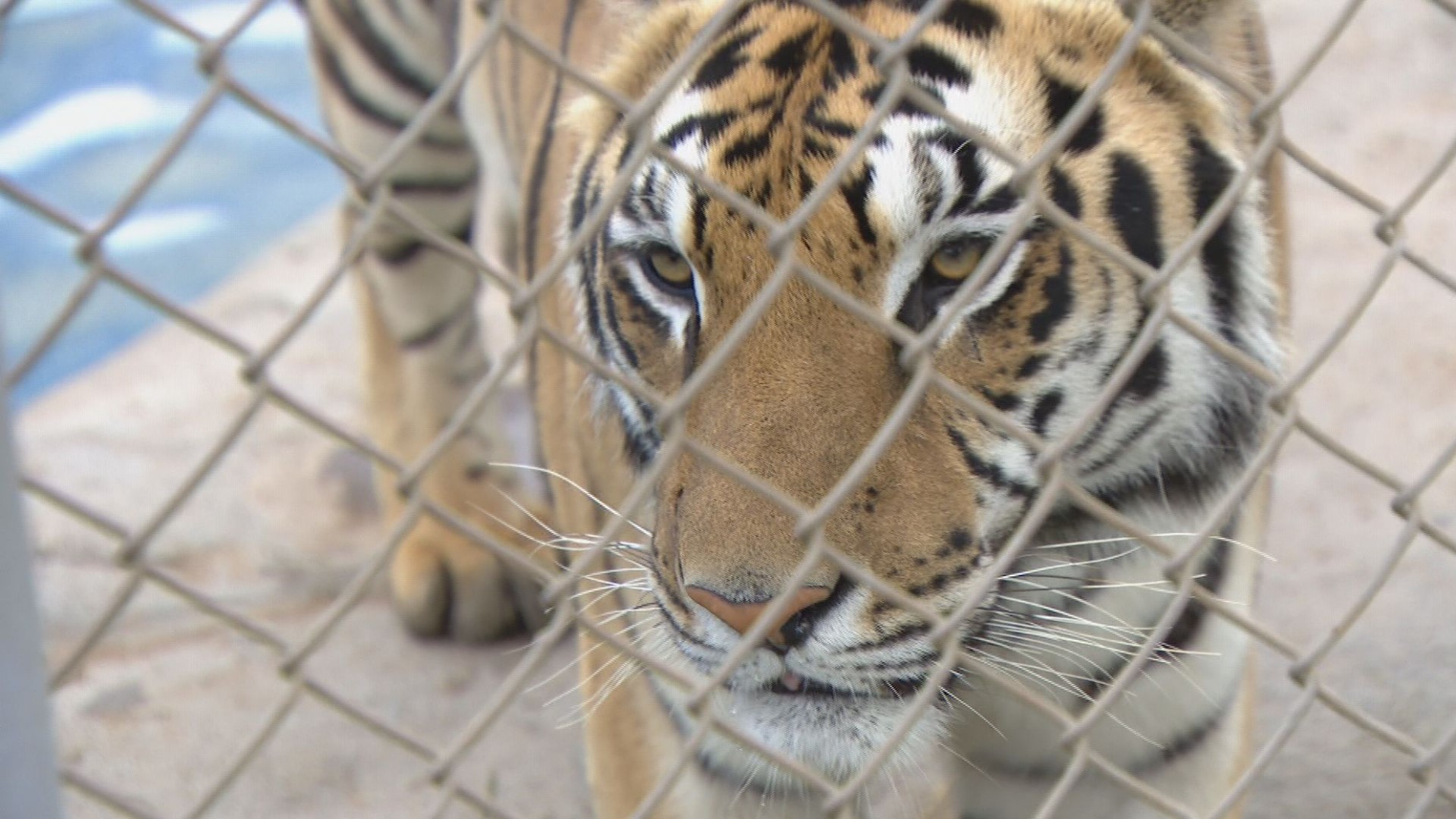WASHINGTON — A first-of-its kind bill to protect tigers, lions and other big cats just passed the U.S. House of Representatives.
The Big Cat Public Safety Act would prohibit people from keeping big cats as pets and ban direct contact, to make cub petting illegal.
Many are kept in small cages, improperly fed and mistreated. Cubs are ripped away from their mothers.
Over the last 30 years, the Humane Society of the United States said there’s been at least 100 "dangerous and cruel incidents" involving big cats that were being kept as pets or in private menageries.
"If you are in a place where you're able to touch the animal or get your photo taken you're part of the cause of the problem," said Bobbi Brink, the founder and director of Lions Tigers & Bears.
The group runs an animal sanctuary in San Diego. Brink has been working on this legislation for nearly two decades.
"These animals live 20 years but they can only use them for a four-week window of their lives. Eight to 12-weeks is the cub petting window. From the time the baby is 8-weeks-old to 12-weeks-old is when it's used and abused the most," she said.
What comes next for many of these animals is even more heartbreaking
"It's pretty unbelievable but most of them disappear. They're killed, sold into the exotic animal trade for their body parts or sold to the neighbor as a pet. You never know who has what animal and for what reason," Brink said.
H.R. 263 hopes to change this. Advocates believe it will help stop people from breeding big cats just to make money and prevent the animals from being treated inhumanely.
Another of the bill’s biggest supporters was Carole Baskin founder of Big Cat Rescue in Tampa, Florida.
She came into the national spotlight following the Netflix series Tiger King that brought up concerns about the private ownership of tigers and lions.
The bill passed the U.S. House of Representatives Friday. It is now headed to the U.S. Senate where bill advocates believe it has a shot at passing.
WATCH RELATED: Lions Tigers & Bears sanctuary welcomes its newest resident-a 700 pound grizzly bear (July 2022).

